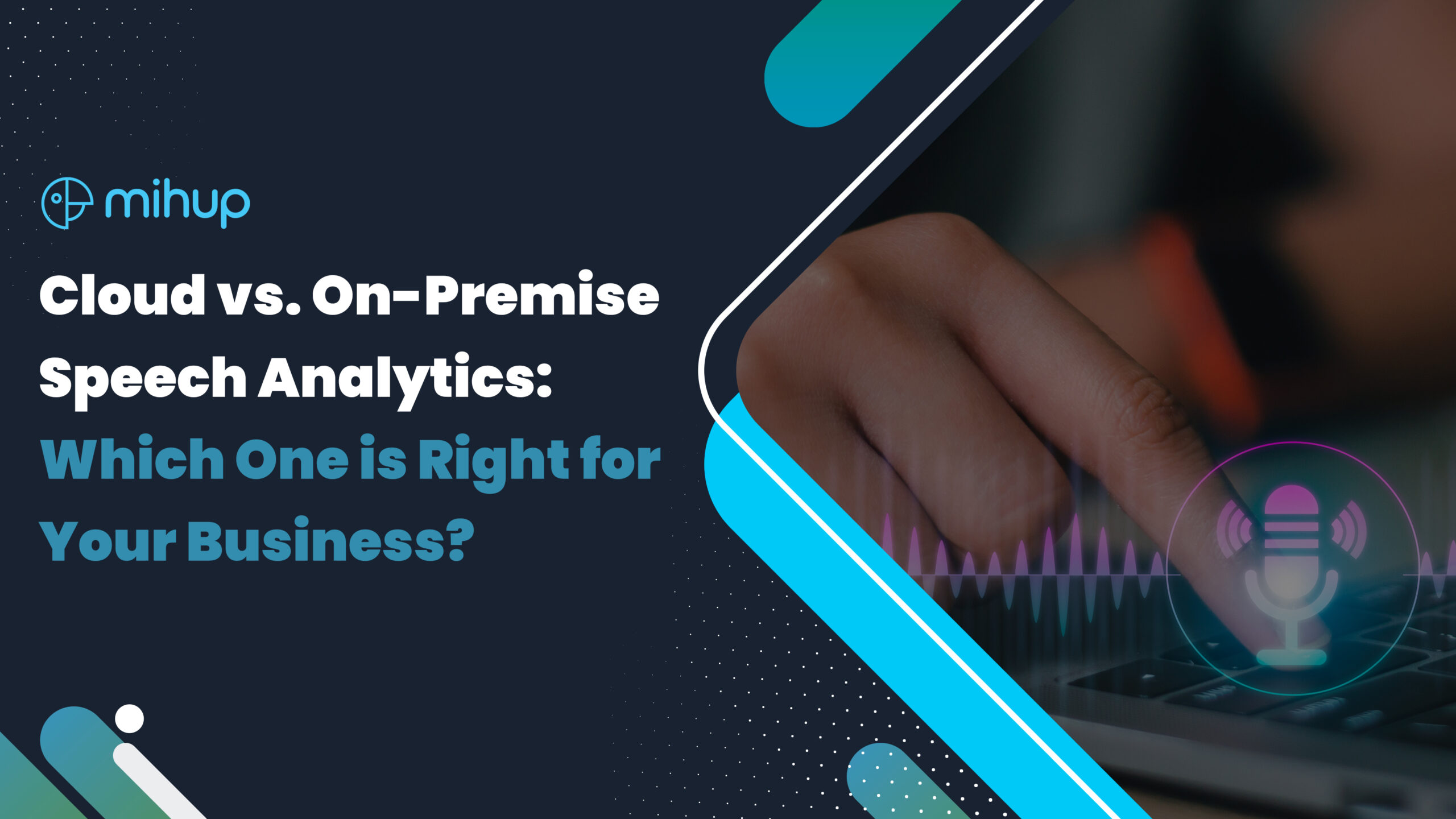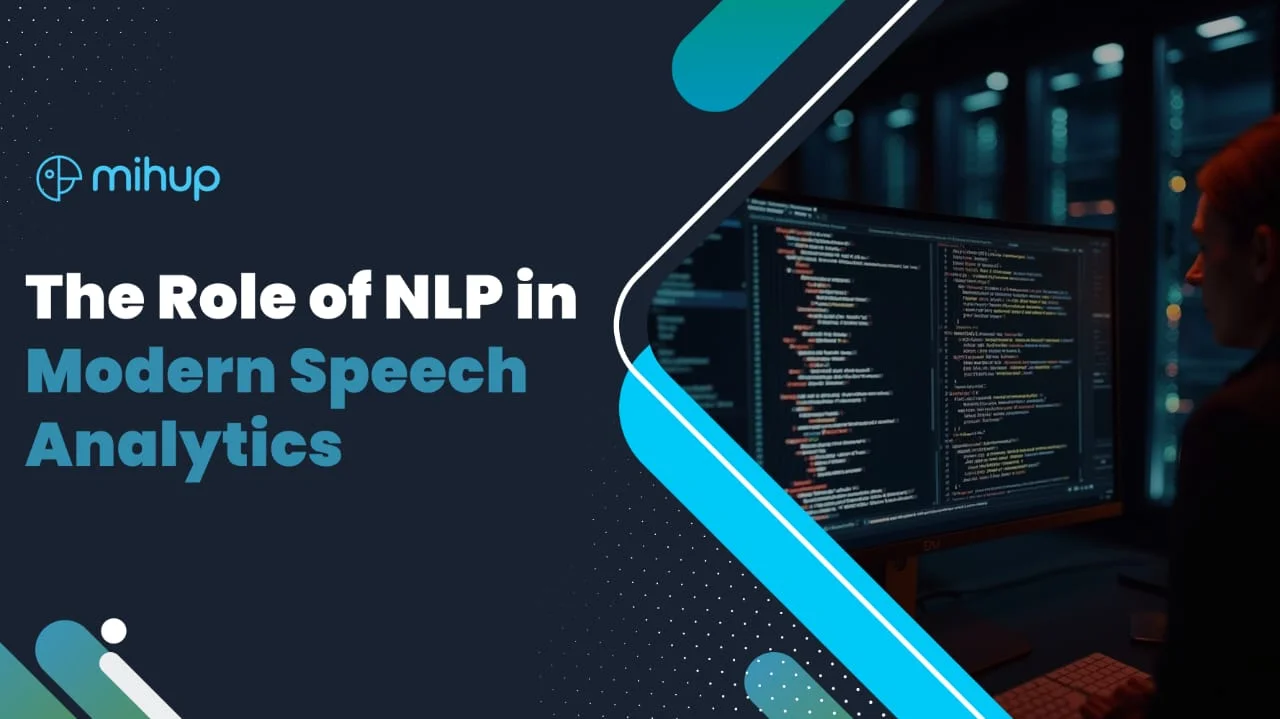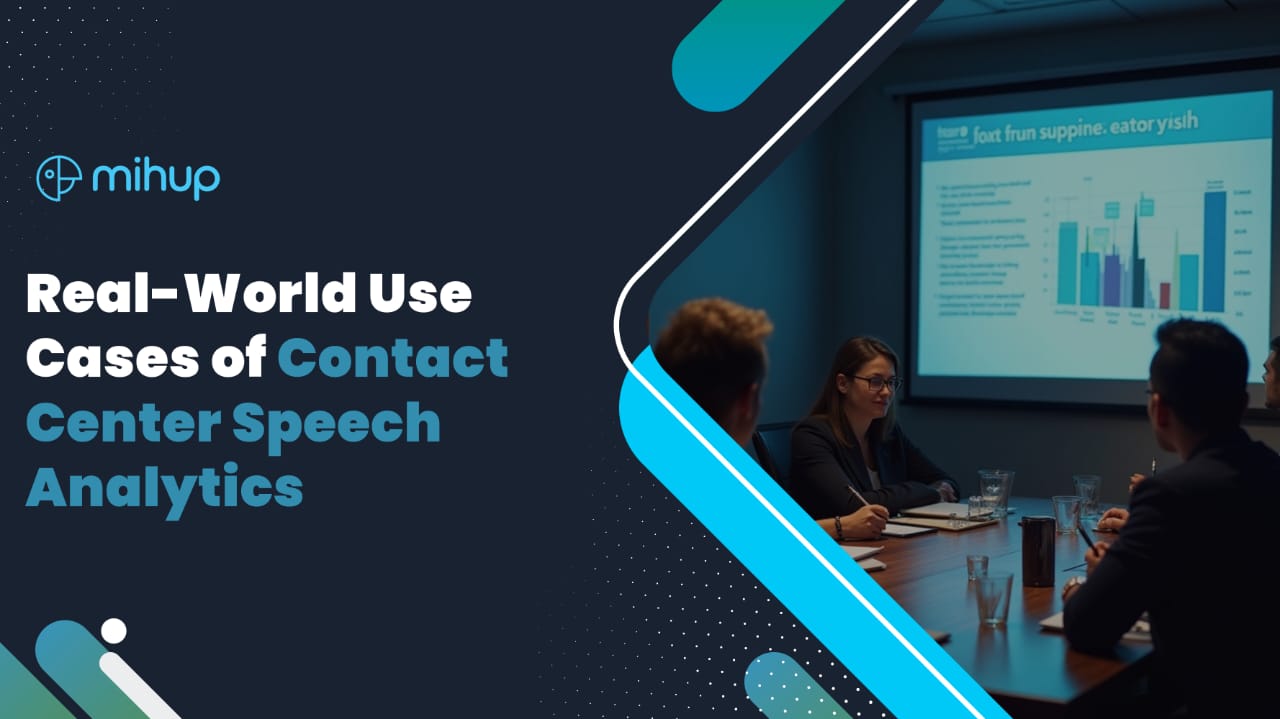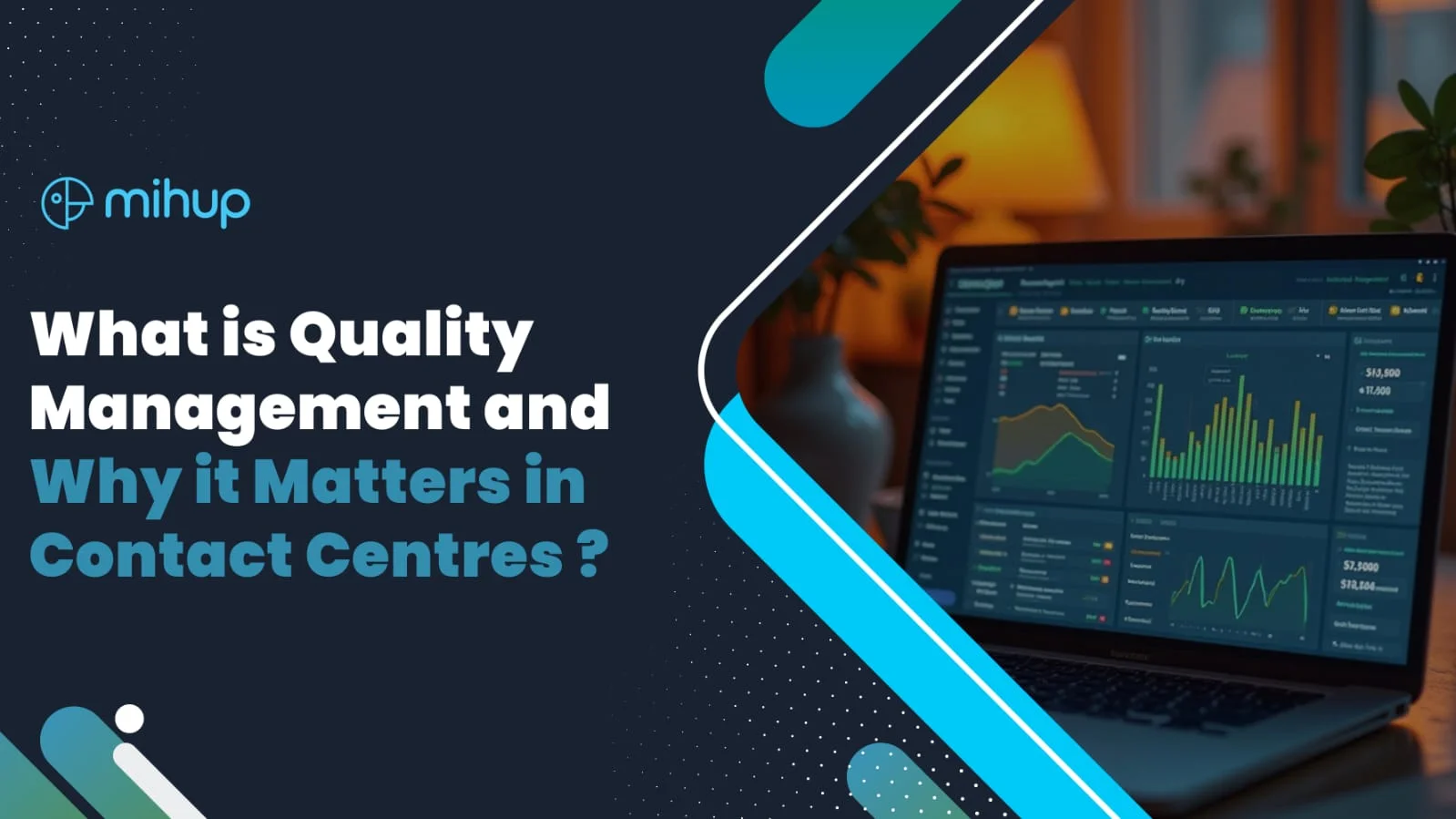Technologies are changing the way how people and businesses work together These days, it might be the case that decision-making is the aspect in which the ability to keep going or the inability to make is found. Let me give you a situation. Every company now has to opt for either a cloud-based solution or a traditional on-premise system for speech analytics. The two methods have their own advantages… but the decision of whether to opt for cloud speech or on-premise speech analytics carries far-reaching repercussions for your business. It determines where your business is in terms of being able to extract insights, improve customer experiences, and propel growth from a relatively lagging state to the leading one.
Key takeaway: The choice between cloud and on-premise speech analytics solutions can have a very significant influence on the decision-making competency of the companies and their overall success.
Understanding Speech Analytics Technology
Speech analytics is a big advantage for companies who want to dig deep into their customer interactions. What it is? It refers to the use of speech recognition, natural language processing (NLP), machine learning, and to a certain extent data analysis in making spoken words understandable and finding insights in them. When speech is converted into behavioral data, it can analyze tone, sentiment, silence duration, keyword usage, and behavioral patterns in conversations. So, speech analytics becomes a great assistant not only to customer service but also for the ones who want to improve the interactions in the supply chain, handle sales better, ensure compliance, and identify operational inefficiencies.
Conversation Intelligence is also a nice addition and innovation for speech analytics and is a method to further improve the call center. This means that in one place one can use both flesh and keyword transcription, detect sentiment, and find the reasons behind the conversations with the customers.
Key Benefits:
- Improved Customer Experience: Proactively address dissatisfaction by identifying pain points early.
- Enhanced Compliance: Monitor interactions for adherence to regulatory standards.
- Employee Training: Identify coaching opportunities based on real-call performance.
- Data-Driven Decision Making: Access to analytics dashboards for strategic planning.
A leader in this space, Mihup.ai offers a robust conversation intelligence platform designed to deliver all these benefits. With scalable architecture, real-time insights, and seamless integration capabilities, Mihup.ai empowers businesses to leverage every customer interaction as a strategic asset.
Deployment Models: Cloud vs. On-Premise
When it comes to deploying speech analytics, businesses typically choose between two models: cloud-based and on-premise systems. Each comes with distinct infrastructure demands, costs, and advantages.
|
Feature |
Cloud-Based Speech Analytics | On-Premise Speech Analytics |
| Deployment Time | Fast; can be live in days | Slower; dependent on IT resources |
| Initial Investment | Low; subscription-based | High; requires hardware, licensing |
| IT Management | Handled by provider | Managed in-house |
| Customization | Limited; vendor-dependent | High; tailored to business needs |
| Control over Data | Shared responsibility with the provider | Complete control |
| Updates & Upgrades | Automatic and frequent |
Manual; based on internal schedules |
On-Premise Solutions
This traditional deployment involves installing software and infrastructure on the company’s own servers. It offers:
- Full data control and security
- Greater customization options
- No reliance on internet connectivity
However, it comes at a cost—both financial and operational. Businesses must manage hardware upgrades, software patches, server maintenance, and security monitoring internally.
Cloud Solutions
In a cloud model, the speech analytics platform is hosted by a third-party provider and accessed via the Internet. Benefits include:
- Lower upfront investment
- Quick deployment and scalability
- Minimal IT dependency
- Frequent feature updates
Cloud solutions are ideal for businesses seeking rapid deployment, easy scalability, and flexibility in pricing.
Scalability, Flexibility, and Cost Considerations
Scalability and cost are two of the most decisive factors when selecting a deployment model.
On-Premise: Rigid Scalability, Heavy Investment
With on-premise deployments, scaling operations typically means investing in new servers, storage, and software licenses. This makes it harder to adapt to changing business needs quickly. Additionally, the total cost of ownership (TCO) may rise due to:
- High capital expenditures (CapEx)
- Ongoing maintenance costs
- IT personnel expenses
However, once implemented, operating costs may be more predictable over time for businesses that prefer capital investments.
Cloud: Flexible Growth, Subscription Pricing
Cloud speech analytics platforms are built for agility. As your call volumes or business needs grow, resources can be scaled up (or down) almost instantly. Pricing is typically structured as a monthly or annual subscription, offering:
- Lower initial costs
- Operational expenditures (OpEx) that scale with usage
- Reduced hardware-related costs
This makes the cloud ideal for startups, fast-growing companies, or businesses with seasonal call volume fluctuations.
Features, Technology Integration, Data Security, and Compliance Factors
Beyond infrastructure and cost, the choice between cloud and on-premise affects the feature set, technology roadmap, and security posture of your speech analytics deployment.
Cloud-Based Systems: Innovation at Speed
Many cloud platforms integrate the latest in AI, natural language processing, and machine learning, offering:
- Real-time analytics dashboards
- Sentiment and emotion detection
- Predictive behavior modeling
- Trend spotting and alerts
These platforms also support seamless integration with other cloud-based tools such as CRMs, ticketing systems, and BI tools. Cloud providers typically offer faster feature rollouts and innovation cycles, ensuring access to cutting-edge capabilities.
On-Premise Systems: Deep Customization, Slower Evolution
While cloud systems offer breadth, on-premise deployments provide depth. You can customize workflows, analytics models, and reporting to align precisely with internal business processes. This makes on-premise attractive for enterprises with highly specific requirements.
However, the trade-off is slower access to new features, as updates require internal testing, rollout, and IT bandwidth.
Data Security and Compliance
Security and compliance often make or break the deployment decision.
| Security Factor | Cloud | On-Premise |
| Data Access Control | Shared responsibility (provider + client) | Full control |
| Encryption | End-to-end encryption standard | Customizable by business |
| Compliance Certifications | SOC 2, HIPAA, ISO 27001 (provider dependent) | Fully managed in-house |
| Risk of Breach | Managed by a provider with dedicated teams | Depends on internal capabilities |
Industries like healthcare, banking, and insurance—where data governance is critical—often prefer on-premise deployments. However, cloud vendors have made significant advances in security, offering enterprise-grade protections that meet regulatory standards.
Making the Right Choice for Your Business Needs
The decision between cloud and on-premise speech analytics should be guided by your business’s size, budget, regulatory needs, and growth expectations.
Ask Yourself:
- Do we need to scale quickly or frequently?
→ Go Cloud - Is full control over data a top priority?
→ Consider On-Premise - Do we have the IT capacity for system maintenance and upgrades?
→ If Yes, On-Premise may work well - Are we operating in a highly regulated industry?
→ Assess the compliance capabilities of both models carefully - Do we want access to the latest features and analytics tools?
→ Cloud typically offers faster innovation cycles
Summary Decision Matrix:
| Factor | Best for Cloud | Best for On-Premise |
| Budget | Small to medium-sized businesses | Enterprises with CapEx flexibility |
| Speed of Deployment | Fast and easy rollout | Requires planning and setup |
| Customization Needs | Standard configurations | High customization |
| Data Privacy Regulations | Moderate to low | Strict/high regulatory environments |
| Growth/Scalability Needs | High or unpredictable growth | Stable or slow growth |
Conclusion
Choosing between cloud and on-premises speech analytics isn’t a one-size-fits-all decision. Each model has its particular list of benefits.) Cloud solutions provide agility, faster innovation, and lower upfront costs which are all perfect for the modern business that requires fast and scalable insights. On the other hand, on-premises systems provide unparalleled controllability, deep customization, and compliance readiness which are all characteristics of an internal IT infrastructure.
So, by considering your budget, scalability, IT capabilities, and compliance landscape, you can make a decision to make sure you are following the path that will better support your long-term goals.
In the final analysis, the actual worth comes from how effectively your organization implements speech analytics for the improvement of customer interaction, operation efficiency, and business growth. Such platforms as Mihup.ai offer businesses massive tools, regardless of the deployment model they have chosen. Book your free Demo today or schedule a call with an expert to make the right decision.





